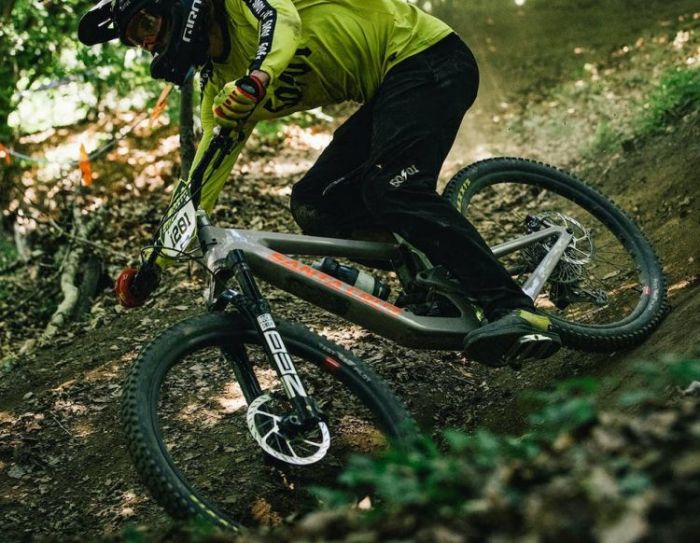Co-op Cycles CTY 1.1 Review
- Price: $649
- Frame: Aluminum
- Tires: 700C Aluminum
- Transmission: 3×8
What we like about it: The 6061 aluminum frame and fork provide a smooth and stable riding experience.
What we don’t like about it: The external cable routing design doesn’t give it a clean and tidy appearance.
Rating: (4.8/5)
.jpg)
The Co-op Cycles CTY 1.1 hybrid bike is an excellent choice for urban and suburban adventures, offering rack and fender compatibility and high-quality, reliable components that make riders fall in love with cycling.
Here, we’ll analyze the riding experience, key features, components, specifications, and other versions of the Co-op Cycles CTY 1.1. In the latter part of this article, we’ve also selected a few bikes for comparison. If you’re interested in more bike reviews, feel free to follow us.
Riding Experience
The Co-op Cycles CTY 1.1 delivers a comfortable riding experience, thanks to its 500W mid-drive torque sensor motor with a maximum torque of 140Nm, providing robust power output for effortless riding.
For this, I took the Co-op Cycles CTY 1.1 to a nearby park for a test ride. The overall distance wasn’t too long, and the terrain was mostly flat and open. I was eager to experience what this bike could do.
Road Riding
The Co-op Cycles CTY 1.1 offered me a pleasant road-riding experience. My initial impression when I hopped on the bike was that the aluminum alloy frame felt robust. When pedaling, the bike had good forward momentum, thanks to the responsive frame. The bike felt cohesive, and I found myself moving faster.
Moreover, the Shimano drivetrain, featuring 3×8 speeds, provided a silky-smooth shifting experience. Every time I shifted gears, the derailleurs moved quickly and precisely to the desired position. This resulted in better pedaling efficiency and increased riding speed.
Once I reached a certain speed, the 700c wheels allowed for a fast cruising pace while maintaining stability.
In summary, the Co-op Cycles CTY 1.1 is an easy and enjoyable hybrid bike to ride, providing a comfortable experience.
Commute Riding
I used the Co-op Cycles CTY 1.1 as my daily commuter for several days. Firstly, this bike supports the installation of front and rear fenders, making it a practical choice for commuting.
The 700c x 40mm tires are sufficiently wide to absorb road vibrations, enhancing the overall comfort of the ride. The generous tire width also reduces the risk of punctures.
The Selle Royal Shadow+ saddle adds to the bike’s riding comfort. The platform pedals allow me to wear any type of shoes while riding.
Finally, the Tektro M300 mechanical disc brakes provide excellent braking power for city riding. I had ample stopping power for handling emergency stops, making the ride safer.
Specifications
.jpg)
.jpg)
.jpg)
.jpg)
.jpg)
.jpg)
The Co-op Cycles CTY 1.1 Bike comes in four different sizes (S-XL) with aluminum alloy frames, suitable for riders with heights ranging from 5’2″ to 6’7″. It accommodates a wide range of rider heights.
The Shimano drivetrain offers 3×8 speeds, ideal for daily riding needs. The shifting is smooth and precise.
Tektro M300 mechanical disc brakes provide strong and reliable braking performance. However, the braking performance may degrade over extended use, necessitating regular maintenance.
Lastly, the 700c wheelset offers improved ride stability and better cruising speed.
Video
Other Versions
The Co-op Cycles CTY 1.1 is a practical hybrid bike that’s durable and offers a lightweight riding experience. It’s reasonably priced and provides reliable performance for daily commuting.
However, there are other versions of this bike with component upgrades, offering an even better commuting experience and enhanced riding capabilities.
Co-op CTY 1.2
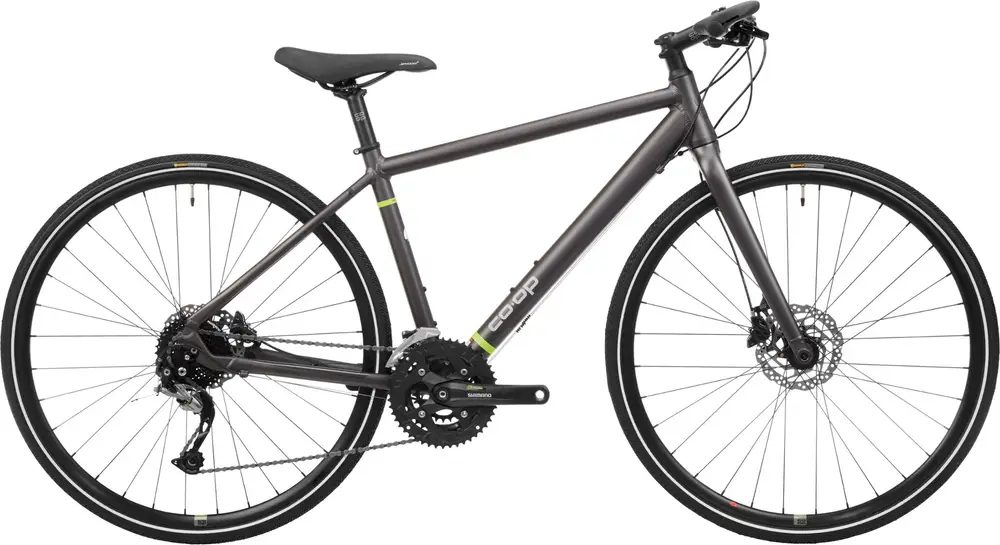
The Co-op CTY 1.2 also features an aluminum frame with external cable routing. It’s equipped with a Shimano 3×9 drivetrain, offering a wide range of gear for daily riding.
This bike utilizes Shimano M315 hydraulic disc brakes, providing reliable braking performance even in adverse conditions, and ensuring all-weather braking capability.
Additionally, the handlebar grips on this bike offer multiple hand positions, allowing for better hand comfort during rides.
What do we like about it?
- The Shimano 3×8-speed drivetrain provides a smooth and precise shifting experience.
- The mechanical disc brakes offer excellent braking performance even in wet conditions.
- Puncture-resistant 700c x 40mm tires have a wide and stable contact patch, versatile tread pattern, and reflective sidewalls.
- Compatibility with fenders and rack mounting for added practicality during commuting.
- The Selle Royal saddle enhances comfort, and platform pedals are suitable for any type of footwear.
- The 6061 aluminum frame and fork provide a smooth and stable riding experience.
What don’t we like about it?
- The external cable routing design doesn’t give it a clean, tidy, and aesthetically pleasing appearance.
FAQ
- What is the maximum weight capacity of this bike?
The maximum weight capacity is 250 pounds.
- Can the handlebar height be adjusted on this bike?
The handlebar height can be raised using a stem riser.
- How do I choose the right size?
We provide a sizing chart here. However, the best way to find the perfect size is to test ride the bike.
| Rider height | SIZE |
| 5’2″ – 5’8″ | S |
| 5’6″ – 5’11” | M |
| 5’10” – 6’3″ | L |
| 6’1″ – 6’7″ | XL |
Specs
Build
| Frame | 6061 aluminumColors: Nightsea; Pitch Black |
| Fork | 6061 aluminum |
| Bottom Bracket | Shimano |
| Headset | FP threadless |
| Stem | Co-op Cycles aluminum |
| Handlebar | Co-op Cycles aluminum |
| Saddle | Selle Royal Shadow + |
| Seatpost | Co-op Cycles aluminum |
| Pedals | Wellgo aluminum platform |
Groupset
| Rear Derailleur | Shimano Acera |
| Front Derailleur | Shimano Tourney |
| Crank | Shimano TY-301 48/38/28 |
| Shifters | Shimano Altus 8 trigger shifters |
| Cassette | Shimano HG31, 11-32, 8-speed |
| Chain | Shimano HG53 |
| Brakes | Tektro M300 mechanical disc Mechanical Disc Brake |
| Brake Levers | Tektro |
Wheels
| Rims | Huafeng |
| Front Hub | Joytech, 32h |
| Rear Hub | Joytech, 32h |
| Tires | Kenda K-1024 with protective shield and reflective sidewall, 700c x 40 mm |
Comparison Table
| Bikes | Click view | Wheelset | Frame Material | Brake Type | Drivetrain |
| Cannondale Treadwell EQ DLX | Click View | 650b Aluminum | Aluminum | Tektro HD-R280 | 1×9 |
| Breezer Doppler Café | Click View | 650b Aluminum | Steel | Shimano MT200 | 1×10 |
| Marin Stinson 1 | Click View | 650b Aluminum | Aluminum | Shimano Mechanical Disc | 1×7 |
| Jamis TRAIL XR | Click View | 26″ Aluminum | Steel | Alloy linear pull type with full alloy 4-finger levers | 3×7 |
Co-op Cycles CTY 1.1 vs. Cannondale Treadwell EQ DLX
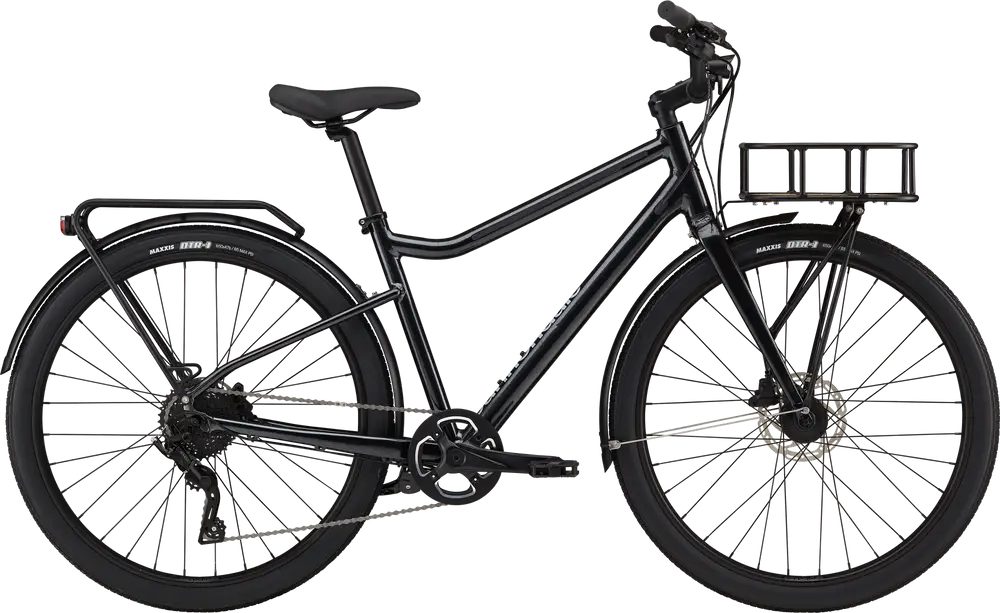
Comparing these two bikes, the first one offers a more aggressive riding position, allowing for higher riding speeds. The latter, on the other hand, provides a more upright riding posture for increased comfort.
In terms of drivetrains, both bikes feature Shimano components. However, the first one has a more extensive range of speeds, offering a variety of gear combinations for a dynamic riding experience. The latter is equipped with a 1×9 drivetrain, which simplifies gear shifting, allowing for better focus during the ride.
Regarding the braking systems, the latter bike is equipped with hydraulic disc brakes, which deliver superior braking performance compared to the mechanical disc brakes on the former. Even after extended use, the hydraulic brakes remain reliable.
In conclusion, the latter bike does indeed offer better performance, but it comes at a higher price. Your choice should also depend on your preferred riding style.
Learn More: Is Cannondale Treadwell 2 Worth Buying? [2022 Cannondale Treadwell 2 Review]
Co-op Cycles CTY 1.1 vs. Breezer Doppler Café
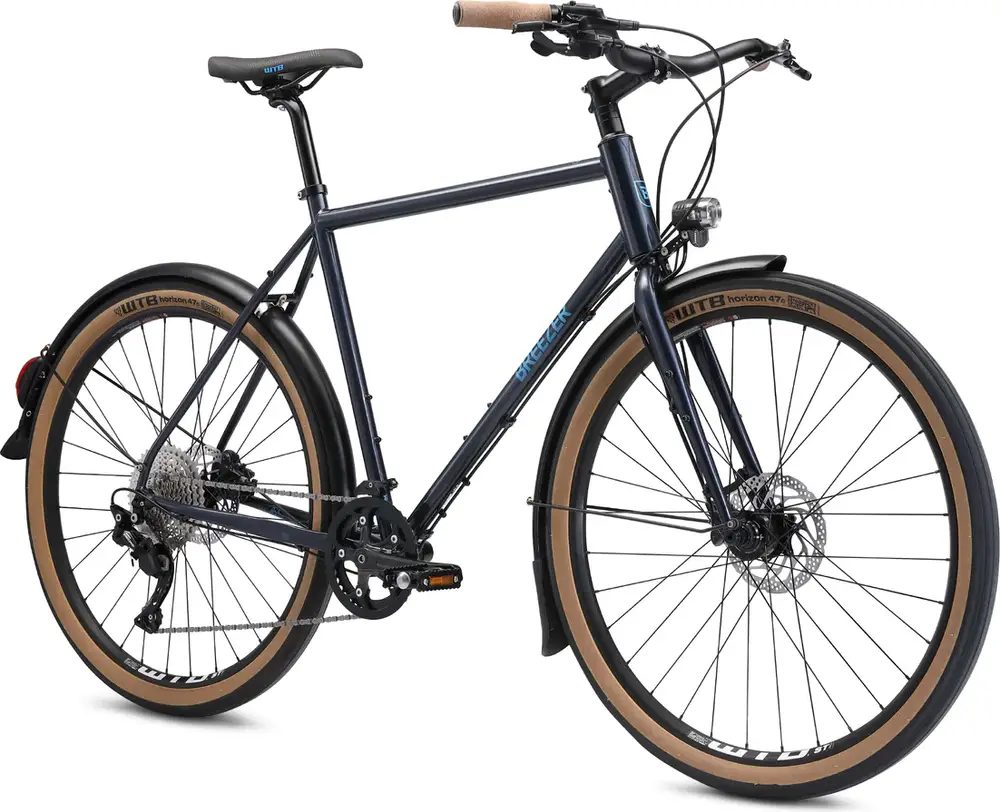
Comparing these two bikes, the first one has an aluminum frame that’s lighter in weight compared to the steel frame of the latter. However, the steel frame of the second bike is better at absorbing vibrations, providing a more comfortable ride.
Furthermore, the second bike comes equipped with front and rear fenders, designed to prevent splashes of water and mud from dirtying your clothes. The larger wheels on the first bike offer improved terrain compatibility, stability, and faster riding speeds. The smaller wheel size of the second bike provides more agile handling, especially for urban street riding.
Lastly, the second bike employs hydraulic disc brakes, which are more reliable than the mechanical disc brakes on the first bike, ensuring all-weather braking performance.
In the realm of these two hybrid bikes, the second one boasts superior components. Therefore, if your budget allows, the second option is a worthy choice.
Co-op Cycles CTY 1.1 vs. Marin Stinson 1
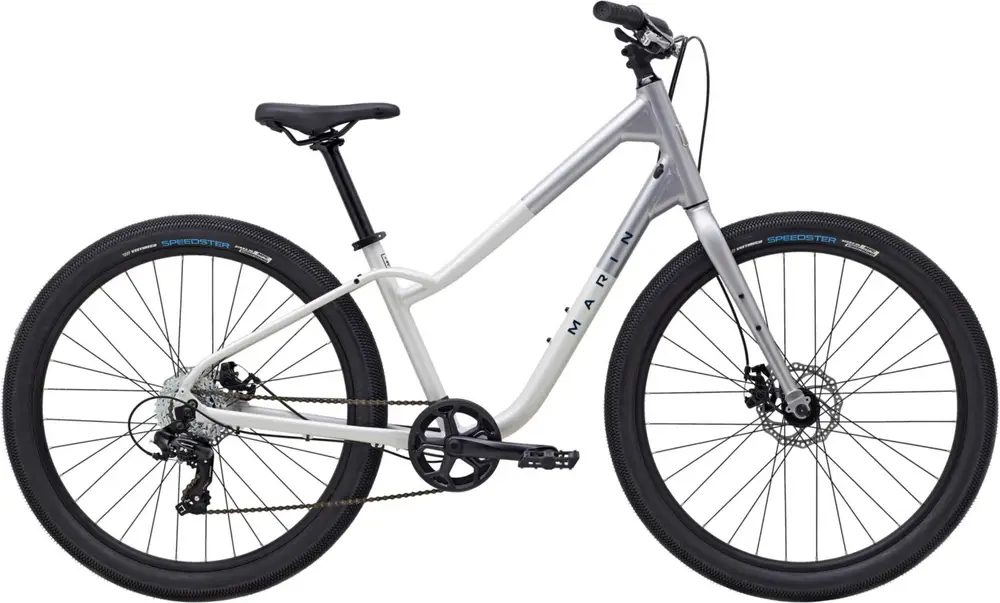
In terms of geometry, it’s evident that the first bike offers a more aggressive riding posture, which results in higher speed capabilities. On the other hand, the second bike promotes a more upright riding position, providing a leisurely and flexible riding experience.
Regarding the drivetrain components, both bikes feature Shimano drivetrain components. However, the first bike’s components offer a wider range of gearing options, allowing for more speed choices. The second bike comes with a 1×7 drivetrain, which simplifies gear shifting and helps maintain better riding focus.
Ultimately, if you’re seeking higher riding speeds, the first bike is the most suitable choice. Conversely, the second bike offers a more comfortable and agile riding experience.
Learn More: Is Marin Stinson 1 Splendid? – [Marin Stinson 1 Review]
Co-op Cycles CTY 1.1 vs. Jamis TRAIL XR
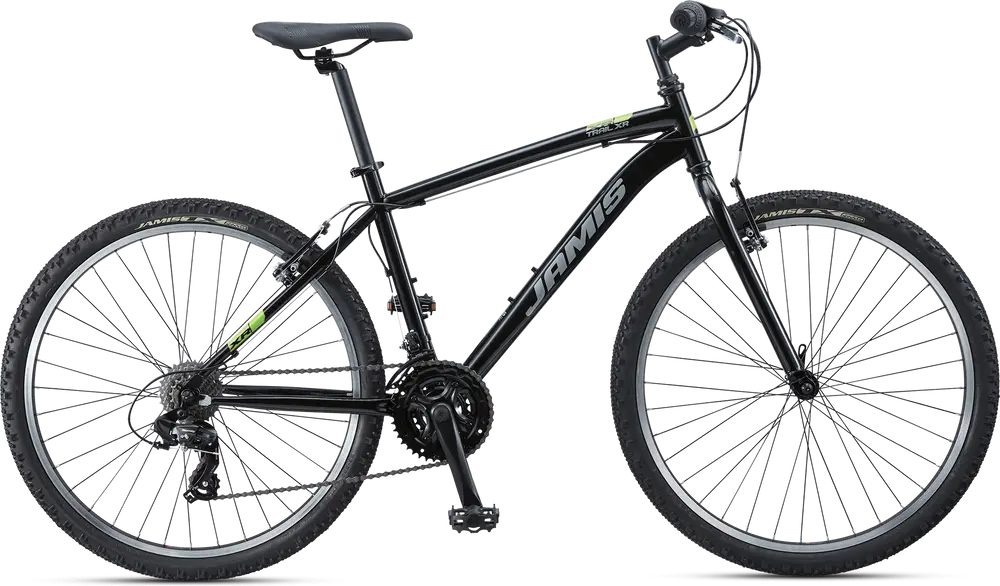
When comparing the Co-op Cycles CTY 1.1 to the Jamis TRAIL XR, I would recommend the former. First and foremost, the CTY 1.1 has a more appealing appearance. In terms of frame materials, the CTY 1.1 boasts a lightweight aluminum frame, while the TRAIL XR features a slightly heavier steel frame, which enhances riding comfort.
Regarding the drivetrain components, both bikes sport high-quality Shimano components, but the CTY 1.1 offers more gears, allowing for a broader range of speed options to handle various terrains.
Lastly, in the wheel department, the CTY 1.1’s larger wheel size results in higher riding speeds and improved stability. The TRAIL XR, with its smaller wheel size, offers a more agile handling experience.
In conclusion, between these two hybrid bikes, I prefer the Co-op Cycles CTY 1.1. It provides a more enjoyable riding experience.
Summary
The above is my review of the Co-op Cycles CTY 1.1. In our opinion, it’s a comfortable hybrid bike, particularly well-suited for urban and suburban riding. This is why we’ve given it a rating of 4.8.
Of course, if you’re interested in other hybrid bikes, we have reviews of a variety of bikes at different price points. Feel free to explore our other reviews.
Lastly, if you enjoy our content, please consider sharing it with your friends. If you find our content helpful, you can click the email subscription button below. Thank you for your support!

![[Orbea URRUN 10 20mph Review] – Best Used By People Who Enjoy Riding To Get AFeel For The Mountains!](https://bestbikeselect.com/wp-content/uploads/2023/09/2023-Orbea-URRUN-10-20mph-35_-1024x1024.jpg)
![[Specialized Turbo Como 5.0 Review] – Good Choice?](https://bestbikeselect.com/wp-content/uploads/2023/08/2023-Specialized-Turbo-Como-5.01_-1024x1024.webp)
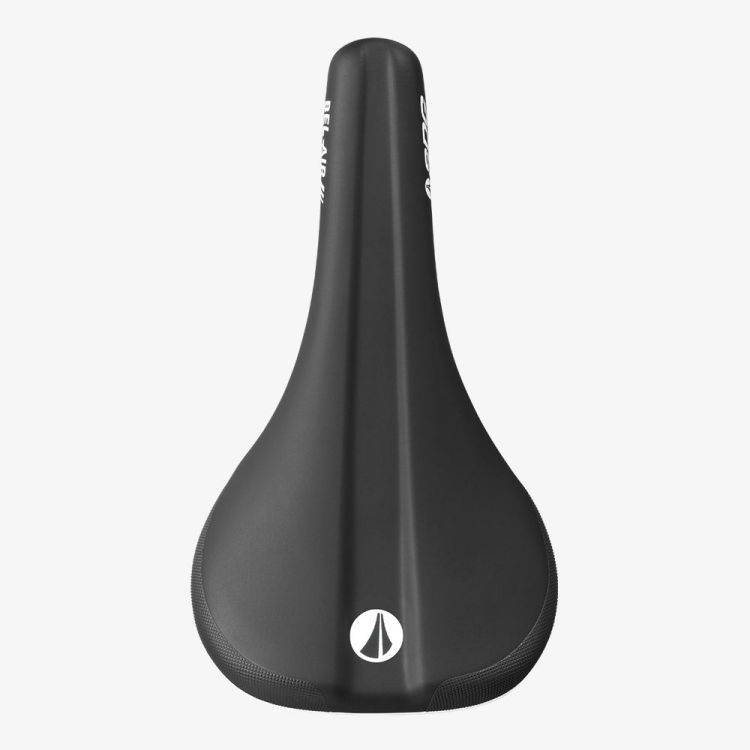
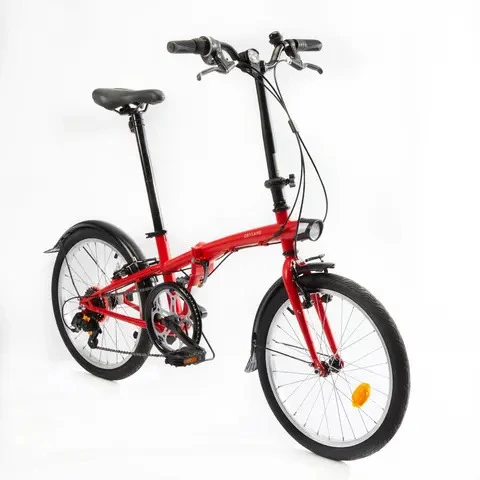
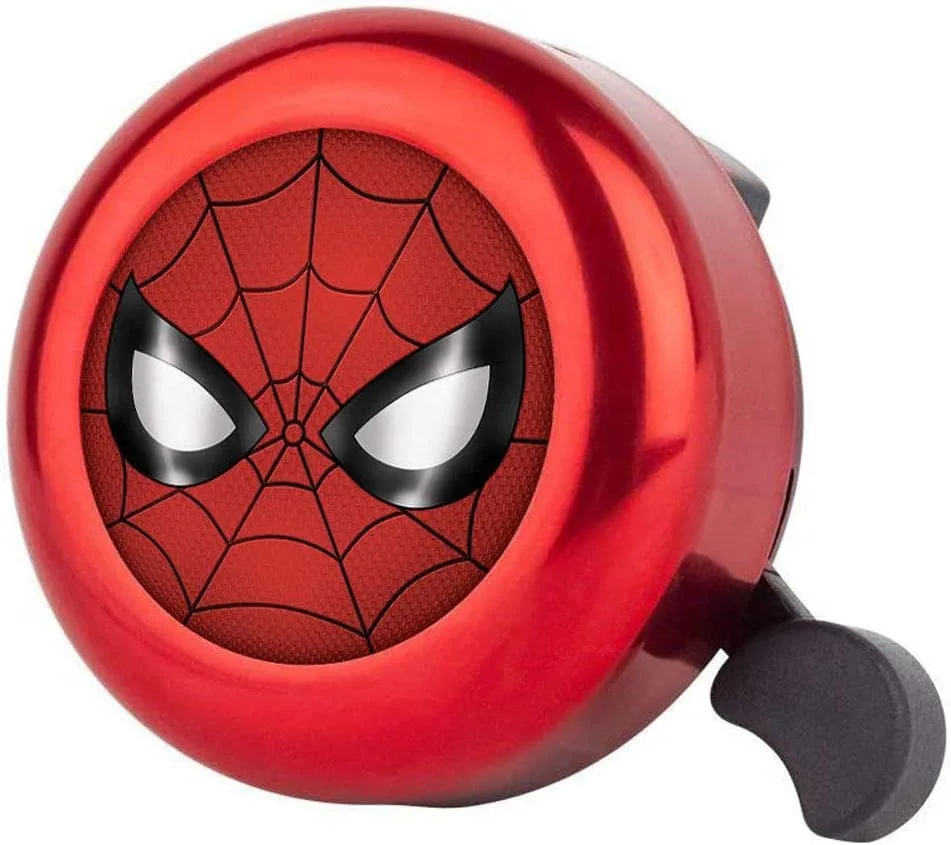
![2025 Built for Champions:[Orbea ORCA M21eTEAM PWR Review]](https://bestbikeselect.com/wp-content/uploads/2025/01/ORCA-M21eTEAM-PWR-1024x885.jpg)
![2025 Conquer Any Trail [Santa Cruz Bronson R Review]](https://bestbikeselect.com/wp-content/uploads/2025/01/Santa-Cruz-Bronson-R-1-1024x768.webp)
![2025 The All-Terrain Beast [Santa Cruz Hightower 3 MY24 Review]](https://bestbikeselect.com/wp-content/uploads/2025/01/Santa-Cruz-Hightower-3-MY24-1024x768.webp)
![The Best Comfortable Leisure Bike of 2025 [ Trek Verve 2 Lowstep Gen 5 ]](https://bestbikeselect.com/wp-content/uploads/2024/12/Verve-2-Lowstep-Gen-5-02-1024x681.png)
![2025’s Top Endurance Bikes [Cannondale Synapse Carbon 3 L Review]](https://bestbikeselect.com/wp-content/uploads/2025/01/Cannondale-Synapse-Carbon-3-L-1-1024x627.webp)
